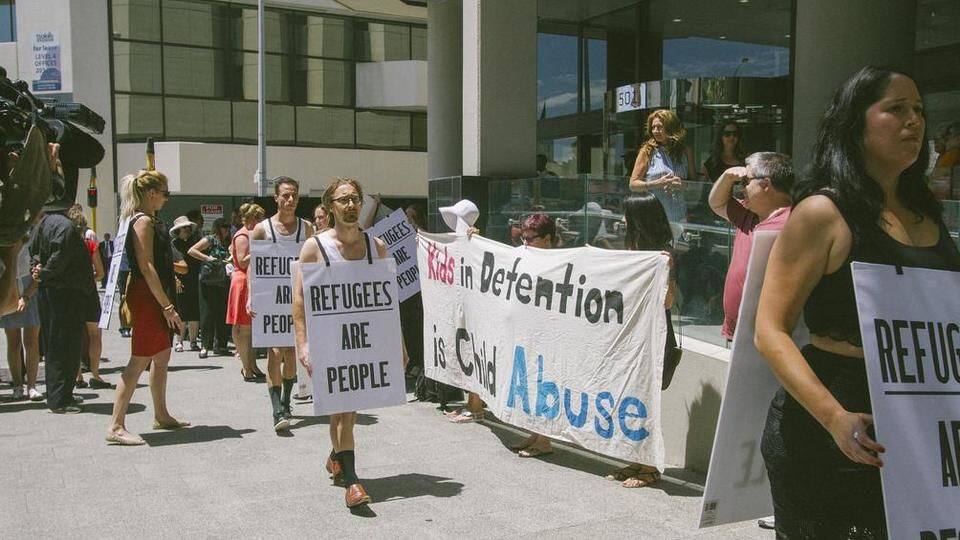
Papua New Guinea police enter controversial former Australia-run detention centre
What's the story
Police in Papua New Guinea (PNG) have entered a controversial former offshore detention center run by Australia to evict asylum seekers.
Since its closure on October 31, hundreds of men have refused to leave the facility on Manus Island citing threats to their safety.
Police have given the refugees an hour-long deadline to leave. They have reportedly arrested one refugee who is a journalist.
Background
Controversy surrounding Australia's offshore detention centers
Australia has a controversial policy to refuse entry to any refugees who attempt to unofficially enter its territory by boat.
Such individuals are intercepted and housed in Nauru and PNG's Manus Island detention centers.
The refugees reportedly live in appalling conditions in these centers, where abuse is widely prevalent.
The UN and multiple rights groups have criticized Australia's policy and the detention centers.
Details
Australia has refused to accept the refugees
The Manus Island center was shut down by Australia after a PNG court ruled that it was unconstitutional.
The court urged the refugees to shift to transit centers located in other parts of the island.
Meanwhile, Australian PM Malcolm Turnbull said his country won't "be pressured" into accepting the remaining refugees as it would encourage human trafficking.
What happened?
What's happening on the ground?
Around 420 asylum seekers were reportedly still at the Manus detention center. Around 35 men had voluntarily left the facility.
A Sudanese refugee said police is "taking all the phones away, destroying all the rooms and belongings and everything."
Iranian reporter Behrouz Boochani, a refugee who was a prominent voice, has been arrested.
Media groups have called it "egregious attack on press freedom."
Options?
What options do the asylum seekers have?
Australia has refused to grant the men asylum.
The refugees have the option of either taking permanent resettlement in PNG, applying for residency in Cambodia or to request a transfer to Nauru.
However, advocates say few of the men have accepted these options.
Under an Obama-era deal, the US had agreed to accept 1,250 refugees but it may accept fewer than that.